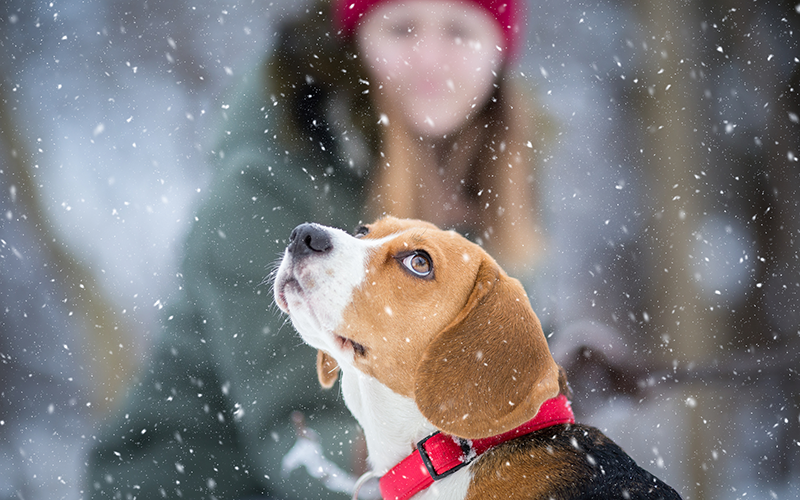Winter is coming whether we like it or not! While some us enjoy spending time outdoors regardless of the weather, other pet owners dread the onset of winter weather, whether it’s rain, snow, or icy winds.
As people across North America sheltered in place due the COVID-19 pandemic throughout the spring and summer, many also became first time pet parents as a boom of pet adoptions occurred! These “pandemic pets” have provided companionship to those isolated from family and friends. As winter approaches, here are 5 helpful tips to get first time pet owners – and all pet owners – through the winter their new companions safe, healthy, and warm!
Keep your pet cozy and warm
Short-haired dogs definitely feel the cold before their long-haired counterparts. But that doesn’t mean that long-haired dogs are immune from feeling the cold. During cold weather, cats and dogs should be kept indoors, as they can still get frostbite and hypothermia despite long fur. Adding a sweater or coat for protection from rain, snow, and wind is a good idea.
Mind the ice
Icy and snowy conditions can be tricky to walk on for the most athletic or agile pet, but for arthritic or senior pets it can be even more difficult, and slips and falls can occur. Rough snow and ice can be hard on the pads of your pet’s feet causing cracks and irritation. And ice balls often build up on paws which makes walking uncomfortable and painful. Check your pet’s paws regularly when outside to remove ice balls and consider booties, paw wax, or other paw protectants to help protect their paws. Once inside, check for cracks in paw pads or redness. Keep the hair between your dog’s toes cut short to help reduce snow and ice buildup.
Skip the salt
Salt and other chemical ice melting agents are harsh to sensitive paws and can be toxic if consumed. Wipe down or wash your pet’s feet, legs, and belly to remove chemicals, reducing the risk that your pet will suffer toxic effects from licking off his feet or fur. Use pet-safe de-icers on your sidewalk.
Avoid antifreeze spills
Antifreeze, also known as ethylene glycol, is used in car radiators to prevent freezing. It is also used in cottages and cabins to ensure pipes don’t freeze over the winter. Antifreeze is extremely toxic and is deadly in even small amounts, causing kidney failure if consumed. Be sure to wipe up any spills, store antifreeze far out of reach of pets, and keep pets out of harm’s way when winterizing the cottage. If you suspect your pet has consumed antifreeze seek immediate veterinary care.
Ditch the drafts
While we can’t prevent all the cold air from sneaking into our homes, we can position our pet’s favorite snoozing beds away from drafty doors and windows. Older cats and dogs, especially those with arthritis, may be stiffer and tender in the winter months. Set up your pet’s comfy bed in a warm area of your home. If your floors get cold, place a blanket or mat under your pet’s bed to add another layer of insulation.
These preventive measures can help keep your pet safe, warm, and healthy this winter!






